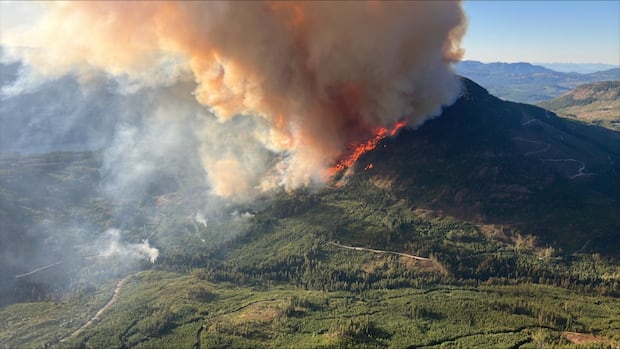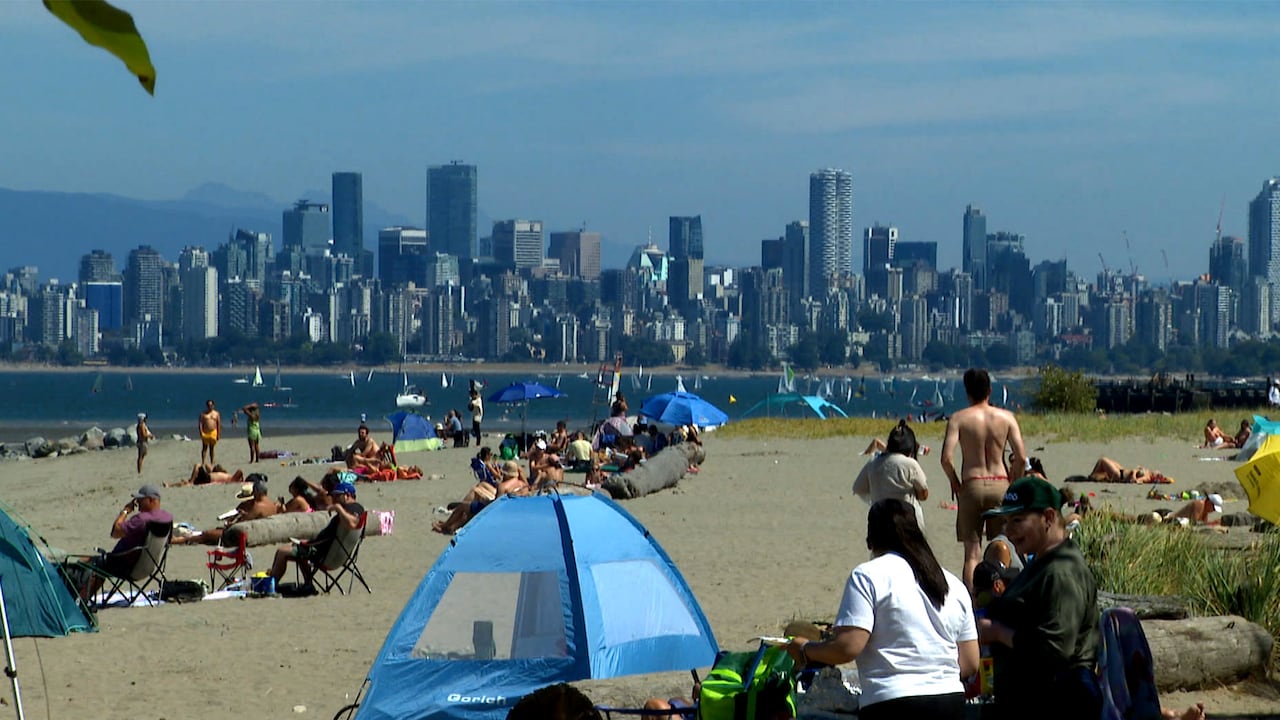As the school year winds down in Saskatchewan, some students say they’ve had starkly different experiences since the province’s pronoun consent law came into effect.
The Parents’ Bill of Rights or Bill 137, a law passed by the provincial government in 2023, requires parental consent before a child under the age of 16 can use a different gender-related name or pronoun at school.
Kimberli Kolody-Watt, who identifies as a member of the queer community, is graduating school this year. Kolody-Watt is also a part of a gay-straight alliance (GSA) at her Regina Catholic high school. GSAs are school clubs for students who wish to support school environments that are safe for, inclusive of, and responsive to gender and sexually diverse people.
Kolody-Watt said she’s been hearing concerns from younger students over the last couple years.
“When the bill came out, I had a lot of kids come up to me saying they were afraid that they were going to die, basically, because of their homes being unsafe,” Kolody-Watt said.
“Another one that I got was that they were telling me to use their dead name now instead of their preferred name because they did not want to be outed and scolded in front of the school, or in front of their family. They just didn’t need that.”
Deadnaming means using the name a transgender person was given at birth, but no longer uses after transitioning.
Kolody-Watt said she’s noticed a hush in the corridors during school hours.
“Everyone was more silent, more secured. No one was really hanging out with each other anymore.”
The pronoun rules were part of a provincial policy announced in August 2023. In September that year, a judge granted an injunction against the change until a court challenge could be heard, saying the protection of gender-diverse youth surpasses the interest of the government.
That court challenge prompted Premier Scott Moe to recall the legislature to make the rule a law. The legislation invoked the notwithstanding clause, a measure that allows governments to override certain Charter rights for up to five years.
The province has not offered details on how teachers would be punished if they don’t abide by the law, saying it has left it up to school divisions to make sure it’s followed.
In 2023, dozens of teachers signed an online petition calling on school divisions not to follow the law. Aubrey Swift, an elementary school teacher at Regina Public School, was one of the signatories.
“The fact that Bill 137 is only in existence because of the notwithstanding clause, I don’t know if I can legally be compelled to follow a law that is against the Charter of Rights and Freedoms,” she said. “I’m working on my personal ethics and the morals of my professional organization as I see those to be.”
She said she’s not aware of a situation yet where a teacher has been reprimanded for not following the consent law.
Swift, who is part of the GSA at her school, said she has been put in an uncomfortable spot over the last two years.
“It’s an extracurricular, so it is connected to school, but because it’s an extracurricular, I respect the privacy of my students in that space,” she said.
“From my perspective, I have seen very few students in the last two years make that request publicly in the school because they don’t feel safe to do so. Personally, I know students who might prefer a different name or pronoun, but don’t feel safe to use it outside of that club.”
Swift said the club is a safe space within the school. She said she fears for the students outside of the club.
“Those are the students whose mental health I worry about the most, because I can’t tell you for sure how those students are doing,” she said.
In an emailed response to the concerns, the provincial Ministry of Education said that if obtaining parental consent for a pronoun change is reasonably expected to cause the student harm, schools must acquire appropriate professional resources to support and assist the student in developing a plan to address the request with their parents.
Some students who have been dealing with the repercussions of the law first-hand haven’t stopped fighting and protesting it.
“I think that it’s really brave of them to be themselves and to do not what is popular, but what is right,” Swift said.

Analu Alvarez, education manager at OutSaskatoon, said its youth program has around 30 students. She said she believes all of those students would agree that schools aren’t safe anymore.
“This is super unsafe for them because if their parents are not supportive, then either the teachers out them to their parents, which can be very unsafe for them and stressful, or they have to hide their true self and they can’t be using their correct name and pronouns,” she said.
Alvarez said she’s also seeing some students drop out of school.
Saskatoon Public Schools didn’t respond to a request from CBC about how many students have had to get parental consent to use preferred names or pronouns over the last two years. Regina Public Schools, in an emailed statement, said compiling the information would take considerable time and that it was unable to honour the request.
The province has maintained its position that the law is meant to make sure that parents are included in their children’s lives.

j wallace skelton, an assistant professor of queer studies and education in the faculty of education at the University of Regina, said most people have a clear sense of their gender when they are somewhere between two and a half to three years old.
“The adults around them are not ready to listen at that point.”
The law has also been criticized by the province’s Human Rights Commission, which said invoking the notwithstanding clause significantly affects the rights of minors. Heather Kuttai, a former Saskatchewan human rights commissioner, resigned over the legislation, saying it assaults the rights of gender diverse children.
A 2024 report from Saskatchewan’s child advocate said the law violates rights to gender identity and expression. The report by Lisa Broda also raised concerns that teachers may be violating their professional standards of practice if they follow it.
The Saskatchewan Court of Appeal reserved its decision on Tuesday in the latest hearing regarding the province’s school pronoun law.
The law, meanwhile, continues to be in court.
Court of King’s Bench Justice Michael Megaw ruled in favour of UR Pride, a 2SLGBTQ+ group in Regina, in a 2024 decision allowing it to make its case on the constitutionality of the new pronoun rules. The province challenged that decision in the Court of Appeal, where the court has reserved its decision until an undisclosed date.
There also might come a situation where the law goes away when the notwithstanding clause expires in a little more than three years from now, but j wallace skelton said people shouldn’t have to wait.
“This is a law that could be changed in the legislature as soon as they desire to, and for the Sask. Party government to be targeting trans and gender diverse and two-spirit young people, really because they think it will appease their political base, continues to be a form of injustice.”







